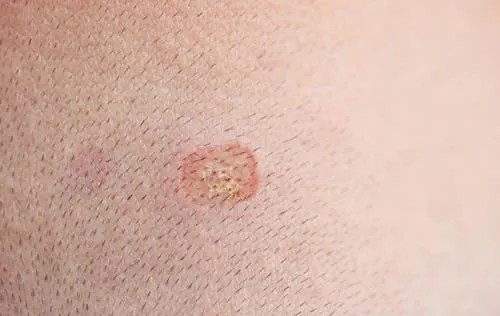What are Birthmarks?
Birthmarks are colored marks on the skin that are present at birth or soon afterwards. They are caused by an overgrowth of blood vessels, pigment cells, or other types of cells in the skin. There are two main types of birthmarks: pigmented and vascular. Pigmented birthmarks are brown, black, or blue and are caused by excess pigment cells. Vascular birthmarks are red, pink, or purple and are caused by abnormal blood vessels.

What are the causes of Birthmarks?
The causes of birthmarks are not fully understood, but they are generally related to an overgrowth or abnormality of certain cells or blood vessels in the skin. They are not caused by anything that a pregnant woman does or doesn’t do during her pregnancy. They happen by chance and sometimes run in families.
There are two main types of birthmarks: pigmented and vascular. Pigmented birthmarks are caused by an excess of pigment cells, which give color to the skin. Vascular birthmarks are caused by abnormal blood vessels, which may be too many, too wide, or in the wrong place.
The Hidden Dangers of Birthmarks
The hidden dangers of birthmarks are rare, but they may include:
- Skin cancer. Some types of birthmarks, such as congenital moles or congenital melanocytic nevi, may have a higher risk of developing into skin cancer, especially if they are large or change in appearance. It is important to monitor these birthmarks and see a doctor if they grow, bleed, itch, or become painful.
- Medical conditions. Some types of birthmarks, such as port-wine stains or cafe-au-lait spots, may be associated with certain genetic disorders or syndromes that affect other organs or systems in the body. For example, port-wine stains on the face may be a sign of Sturge-Weber syndrome, which can cause seizures, glaucoma, and learning difficulties. Cafe-au-lait spots may be a sign of neurofibromatosis type 1, which can cause tumors on the nerves, skin, and other tissues. These conditions require regular medical check-ups and treatment.
- Cosmetic concerns. Some types of birthmarks, such as hemangiomas or port-wine stains, may cause emotional distress or low self-esteem due to their appearance or location on the body. Some people may choose to have their birthmarks removed or lightened by laser treatment or surgery for cosmetic reasons. However, these procedures are not always effective and may have side effects or complications.
Most birthmarks are harmless and do not need treatment unless they pose a health risk or cause psychological problems. If you have any concerns about your birthmark or your child’s birthmark, you should consult your doctor for advice and diagnosis.
What treatments are available at the dermatologist for Birthmarks?
There are different treatments available at the dermatologist for birthmarks, depending on the type, size, location, and appearance of the birthmark. Some of the common treatments are:
- Laser therapy: This is a procedure that uses a beam of light to shrink or remove blood vessels or pigment cells in the skin. It can help lighten or fade vascular birthmarks, such as port-wine stains or hemangiomas, or pigmented birthmarks, such as café-au-lait spots or congenital moles. Laser therapy is usually done in several sessions and may cause some temporary side effects, such as redness, swelling, bruising, or blistering.
- Medication: This is a treatment that involves taking oral or topical drugs to reduce the growth or size of certain birthmarks. It can be effective for hemangiomas of infancy, which are red, raised birthmarks that tend to grow rapidly in the first year of life. One of the medications used for this purpose is propranolol, a beta-blocker that shrinks blood vessels and reduces blood flow to the birthmark. Medication is usually prescribed by a dermatologist and may have some side effects, such as low blood pressure, slow heart rate, or drowsiness.
- Surgery: This is a treatment that involves cutting out or shaving off the birthmark with a scalpel or a special device. It can be used for birthmarks that are raised, large, or located in areas that are difficult to treat with other methods. Surgery is usually done under local or general anesthesia and may leave a scar or a skin graft.

FAQ About Birthmarks
What causes pigmented birthmarks?
The exact cause of pigmented birthmarks is not known, but they are thought to be caused by an overgrowth of pigment-producing cells in the skin.
Are pigmented birthmarks dangerous?
Most pigmented birthmarks are benign and do not pose a health risk. However, it is important to monitor them for any changes, as some pigmented birthmarks may develop into skin cancer.
Can pigmented birthmarks be removed?
Some pigmented birthmarks can be removed for cosmetic reasons or if there is concern for skin cancer. Treatment options include surgery, laser therapy, and topical medications.
Are there any risks associated with removing pigmented birthmarks?
There are risks associated with removing pigmented birthmarks, including scarring and changes in pigmentation. It’s important to consult with a qualified medical professional for the best advice on treatment.
What should I do if I have a pigmented birthmark that is changing in size, shape, or color?
If you have a pigmented birthmark that is changing in size, shape, or color, it is important to have it evaluated by a qualified medical professional. This could be a sign of skin cancer.
Is it possible to prevent pigmented birthmarks from developing?
It is not possible to prevent pigmented birthmarks from developing, as their cause is not fully understood. However, it is important to protect your skin from excessive sun exposure and to have any suspicious birthmarks evaluated by a qualified medical professional.
Is there a dermatologist near me in Boise City that offers treatment for birthmarks?
Yes. At our Boise City dermatology office we offer treatment for birthmarks to patients from Boise City and the surrounding area. Contact our office today to schedule an appointment.

